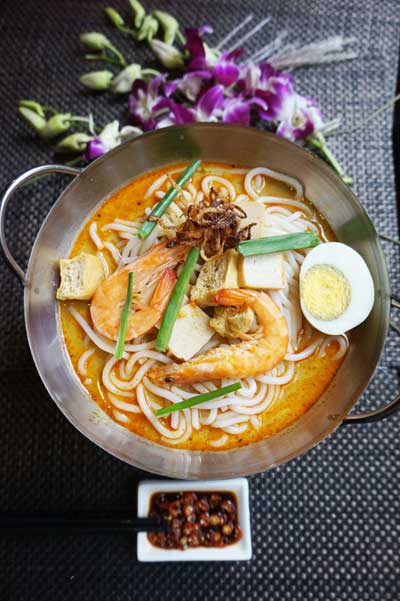

 |
|
Laksa is a traditional spicy soup made with dried and ground prawns, reflecting the importance of seafood in Malaysian cuisine. Photo provided to China Daily |
The phrase "Maritime Silk Road" evokes a heady period of Chinese history loaded with powerful imagery. While the overland trade route is most celebrated in lore and history, the sea route may have been more important.
That route took China's great seafarers such as Zheng He to Malacca (Melaka) and other great ports of the day, with their cargoes of silk, tea, lacquer ware and porcelain. In Malaysia, they were trading for spices like cinnamon and nutmeg, the very culinary treasures that took me to the restaurant Raya in Beijing last week.
If Zheng, one of the greatest navigators of all time, arrived at the huge commercial mall with a Las Vegas-like glow where Raya is tucked in behind a Burger King, he might be forgiven for wondering "Where the heck am I?" But once inside the warm and intimate space of Raya, his nose would tell him he was just where he wanted to be.
My nose is sending the same message, as my face hovers over a plate of Penang char kuay teow, a noodle speciality fried with garlic, ABC sweet soy sauce and "our homemade spice mix", I learn later from the restaurant's owner, Tan Chuan Jin, an architect who operates Raya as a sideline.
That spice mix seems to have infinite potential, I discover on another visit. I'd ordered too many chicken dishes for our table, or so I thought. But each was prepared so differently that the recurring meat was never an issue.